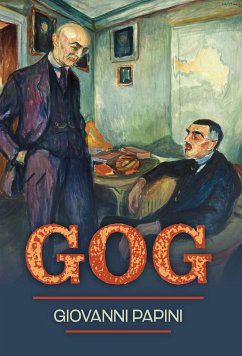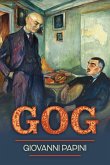This almost unclassifiable work of experimental fiction, first published in 1931, tells of the worldwide wanderings of a rich and idle American, Goggins (nicknamed Gog), who expends his fortune in an insatiable quest for... is it knowledge, or novelties? Years later, Gog-impoverished and confined to an insane asylum-one day entrusts a large sheef of notes to a frequent visitor whose company he had come to enjoy. These, it turns out, are the record of his travels and interviews. In about ninety entries, we encounter a variety of geniuses with whom Gog gained audience, including Freud, Edison, Einstein, Henry Ford, H. G. Wells, George Bernard Shaw, and Lenin, as well as obscure idealists who eagerly display their several manias: modernist sculpture, avant-garde poetry, futuristic architecture, academic sub-subdisciplines, niche curio collections. Papini's anarchic humor brings into sharp relief the strangeness of human beings and the wilfully exacerbated strangeness of modernity.
Hinweis: Dieser Artikel kann nur an eine deutsche Lieferadresse ausgeliefert werden.
Hinweis: Dieser Artikel kann nur an eine deutsche Lieferadresse ausgeliefert werden.








